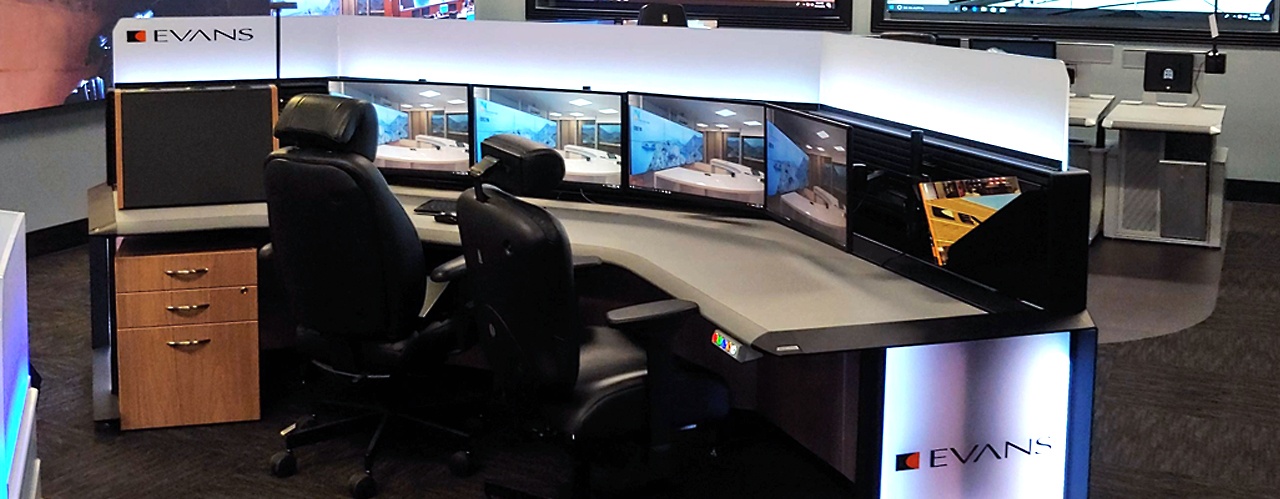- Blog
- Control Rooms (26)
- Events (21)
- Public Safety (21)
- Team (19)
- Ergonomics (9)
- Product (8)
- Mission-Critical (7)
- Console Cleaning (5)
- Air Traffic Control Towers (4)
- Acoustics (3)
- Denise Amber Lee Foundation (2)
- Government (2)
- NASA (2)
- GSOC (1)
- Oil & Gas Control Rooms (1)
- Project of the Month (1)
- Virtual Reality (1)
- Warranty (1)
Part 2 of our two-part series: Consoles vs Office Furniture.
Industry expert, Jeff Fairholm, Regional Sales Manager, Evans continues his discussion on the difference between the two and why it is important to invest properly in your mission-critical environments furniture.
Complete Room Design Process
Over the years, office furniture environments have improved, but they still fall short of what is required when it comes to a control room. The highly demanding 24/7 environments and critical nature of an operator’s job require various components which are often overlooked when designing a control room. Control rooms require special designs.
Products such as acoustical design, lighting designs, taking into account Circadian Rhythms, sightlines, distances, flooring, antistatic elements, and a huge amount of audiovisual products – the amount of detail is endless!
Modular Approach
The modular approach is where consoles and office furniture align. Office furniture has long been a proponent of modularity and the best consoles also adhere to that philosophy.
Consoles have the ability to adapt to their environment. The substructures are modular which allows structures to be added or removed. By having a slatwall or slatrail, it is easy to change the monitors and their respective arrays as the business changes. And with ever changing technology in control rooms, consoles are designed with this in mind - to ensure that they can adapt to technology requirements, without having to replace the entire console.
Modular Electrical Components
Modular electrics have become a necessity in control rooms. For decades, office furniture has had a type of modular electrical system -- BUT these systems are once again office based in that they only have a single circuit.
Control rooms, on the other hand, considering the amount and type of equipment and the need for no failure have a tremendous draw on power. Often a single console will require up to and sometimes more than 3 circuits, always involving both uninterrupted power and utility power.
Ease of Maintenance
Consoles provide front, rear, and side access for maintenance and cleaning to take place, which is imperative for their 27/7, 365 operating environment. This enables technicians, cleaners, and others the access they require without disrupting the operators and other employees during times of operation.
Desks do not provide the same level of accessibility or flexibility. Office furniture is typically restricted to one point of access, posing a challenge for technicians and others who require access for cleaning and maintenance.
Console Environmental Criteria
Control room operators often require their own console and personal environmental control system. Connected to ergonomics, environmental controls are also an important factor in each operator’s outcome. Individual controls for things such as heating and cooling contribute to their comfort and work behavior. With each operator different from the next, flexible, adaptable individual controls make the difference in performance. Office furniture does not provide such required options.
Did you miss Part One? Read it here.
Topics: Control Rooms, Mission-Critical
Subscribe for monthly updates:
Subscribe to our blog today for expert tips, news, and insights on the control room industry.
 Consoles vs Office Furniture – Part 2
Consoles vs Office Furniture – Part 2